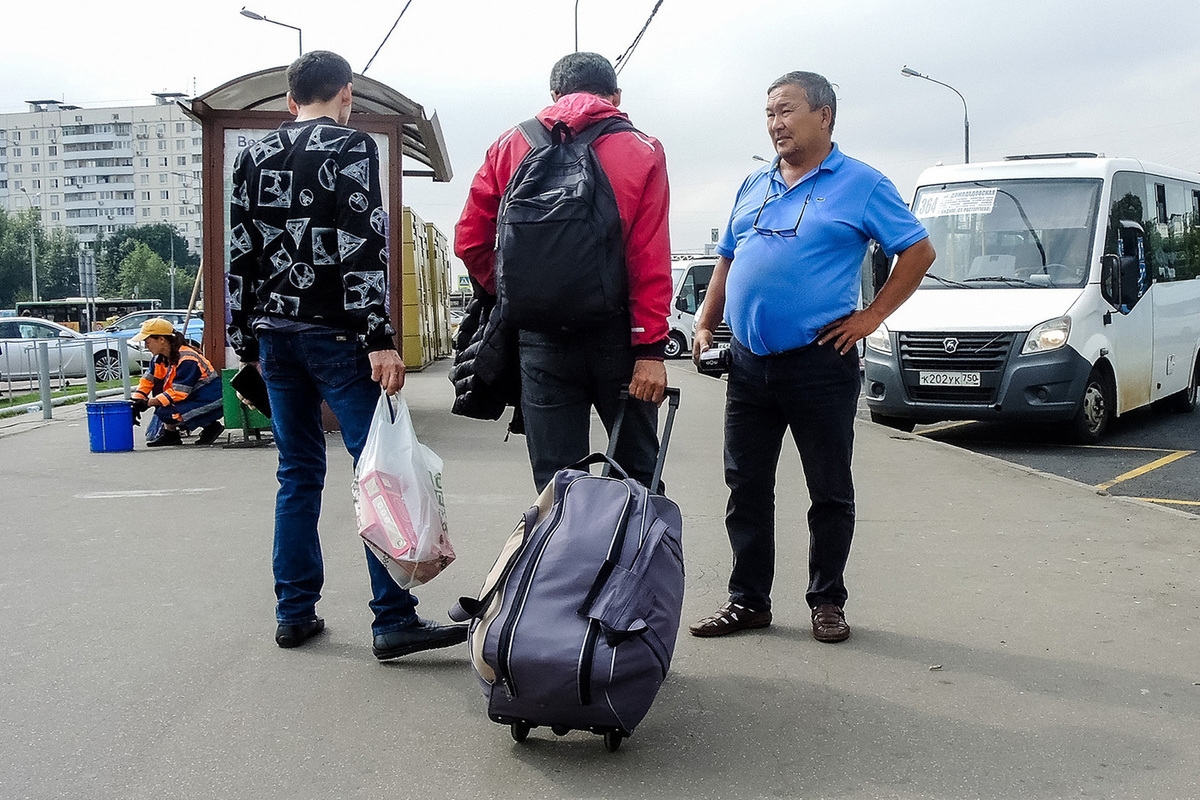The Ministry of Labor's initiative to establish quotas for migrant workers has been assessed.

Experts have deemed the Ministry of Labor's proposal to increase the quota for skilled workers from abroad by 20% to 279,000 permits in 2026 reasonable. This primarily applies to industrial enterprises, which are currently in dire need of such specialists. However, according to market analysts, Anton Kotyakov's ministry should not forget the overall cooling of the Russian economy and other realities that run counter to his initiative.
The Ministry of Labor and Social Protection establishes a quota annually based on applications from domestic companies. It is then reviewed by an interdepartmental commission. Only a very small share, approximately 8%, are unskilled workers, such as those employed in difficult working conditions. The vast majority of highly skilled specialists come from non-CIS countries requiring visas—primarily India, China, Bangladesh, and Malaysia.
In 2025, the quota is set at 234,000 permits, yet in the first six months, employers brought only a quarter of the previously announced number of foreign workers to Russia. This figure raises questions. Overall, the government intends to further develop the quota mechanism, as evidenced by the recently published Concept of State Migration Policy for 2026–2030. The Ministry of Internal Affairs will directly oversee the organized recruitment of migrants, meaning that this authority will be transferred from the Ministry of Labor.
"Russia needs skilled labor, and it's these workers who need to be imported, not people who only know how to lug sacks of cement around construction sites," says Alexey Zubets, director of the Center for Social Economic Research. "The government should have adopted a policy of increasing quotas for skilled specialists from India, China, Cuba, and even North Korea ten years ago. But better late than never. There won't be any ethnic issues with these people; they don't claim Russian citizenship or any special privileges, which can't be said for migrants from the post-Soviet republics of Central Asia."
Regarding statistics indicating a decline in the influx of skilled foreign workers in recent years, the issue is more likely a matter of wages. Our industrialists, Zubets argues, are characterized by stinginess. Meanwhile, finding the necessary personnel willing to accept a salary of "three kopecks" is impossible. Current macroeconomic circumstances must also be taken into account: for example, those same automobile plants, which just a couple of years ago were experiencing an acute shortage of production workers, are now idle and laying off staff. Demand for labor is noticeably falling in stagnant sectors.
"Since we're talking about a quota for qualified specialists, I wonder: has the Ministry of Labor considered the competition from Western labor markets and all those who can offer foreigners a different, more attractive level of wages and employment than Russia?" says Sergei Smirnov, a leading research fellow at the Institute of Scientific Information on Social Sciences of the Russian Academy of Sciences. "It's well known that many of these workers view our country as a springboard for entry into more developed economies. Regarding the situation with unskilled workers, I note that the demand for them is clearly declining amid the collapse in the construction sector, the general economic slowdown, the uncertainty of the outlook, deteriorating budget indicators, and the growing number of companies that have switched to a four-day workweek and eliminated vacancies."
According to Smirnov, the Ministry of Labor should prepare a cross-sectoral forecast of actual personnel needs, and not chase numbers, but ensure they are filled with quality. Regarding organizational recruitment, the approach should be balanced: let the Ministry of Internal Affairs have the final say (including all technical aspects related to border crossings and security checks), but with a preliminary and mandatory expert opinion from the Ministry of Labor. First, it is necessary to understand the extent to which a particular specialist is needed by a particular enterprise.
"The Ministry of Labor's initiative to increase the quota for attracting foreign skilled workers to 279,000 permits in 2026 appears timely and justified," says Anastasia Gorelkina, an expert on social communications and family initiatives. "Business demand for skilled workers—especially in industry and infrastructure projects—continues to grow. Although only a portion of the current quota was met by the end of the first half of the year, this is not due to a decline in foreign interest in working in Russia, but to the gradual launch of new mechanisms for attracting migrants."
Transferring the function of organizing migrant recruitment from the Ministry of Labor to the Ministry of Internal Affairs ensures more centralized and efficient management of the process. As Gorelkina notes, the Ministry of Internal Affairs has the resources and experience to coordinate the entry of foreign specialists, which will increase the transparency of procedures and simplify the permit process.
Published in the Moskovsky Komsomolets newspaper, No. 29639, October 30, 2025
Newspaper headline: A migrant is a migrant even from Africa
mk.ru


